Electrifying school bus fleets : Grants available to support your project
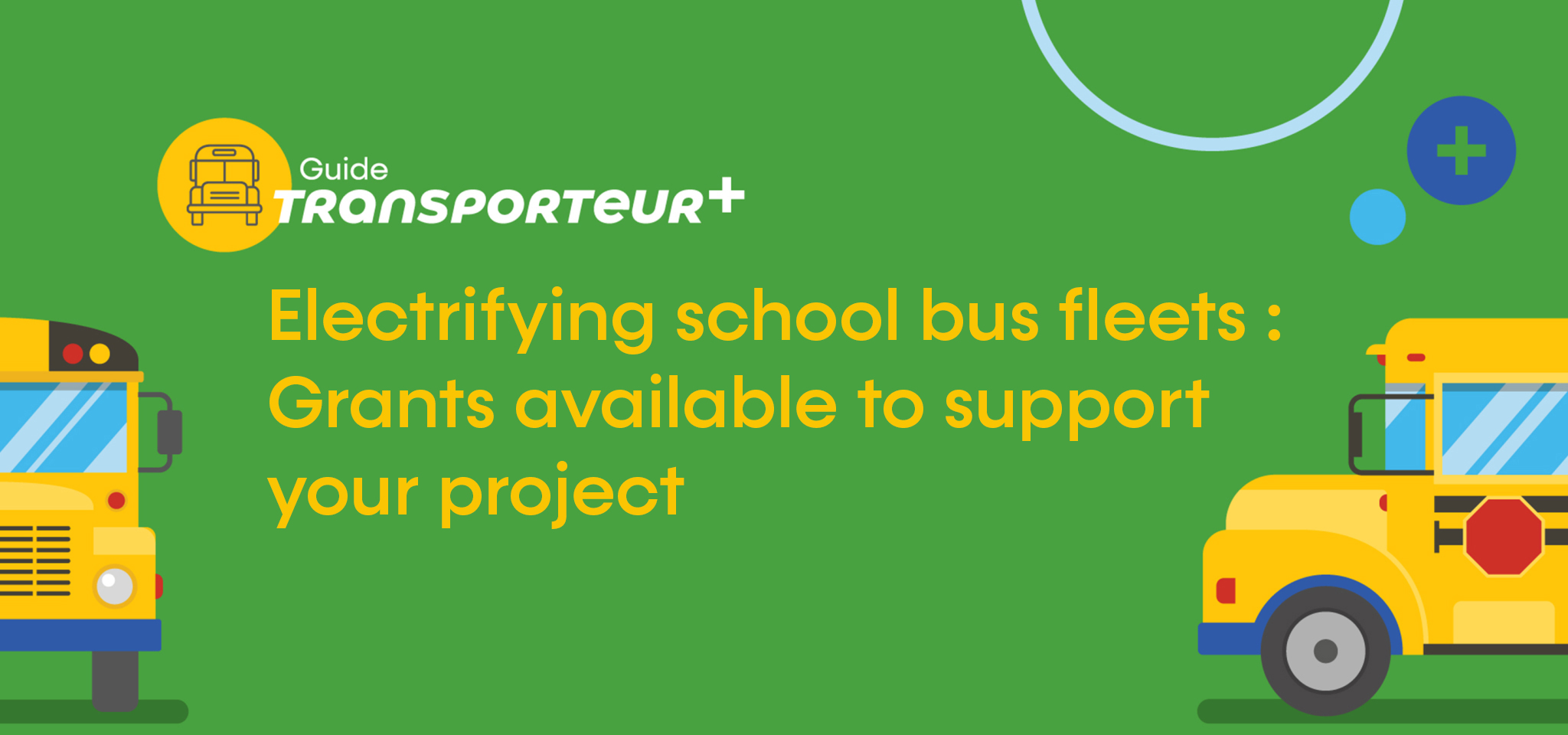
In this series of articles, we demystify the key steps of converting your school bus fleet to electric power thanks to the Transporteur+ guide. This guide aims to provide easy and direct access to resources to clarify the steps, issues, conditions and facilitating measures for a successful transition to electrification.
Did you know there are government grants that can cover almost a third of the purchase price of electric buses? Several subsidies also cover 75% of the costs of installing charging stations and the studies required to install them. In fact, the Canada Infrastructure Bank, in partnership with the Bus Carriers’ Federation (BCF), offers financing at a very low interest rate, to be paid back only if cost savings are realized through the introduction of electric buses.
Propulsion Québec developed the Transporteur+ guide to help you equip your electrification project. Remember, you are not alone: Many experts are available to advise, guide and support you, taking into account the constraints faced by individual operators. In addition, manufacturers are developing a range of technical support services for each implementation stage.
The availability of electric school buses is on the rise in North America, but only two manufacturers are currently eligible for Quebec grants.
Several manufacturers of Level 2 charging stations are available and eligible for grants.
There are now several advantageous options available to Quebec school bus operators to finance a transition to electric vehicles.
Quebec’s school transportation electrification program provides school bus operators with two types of grants, one for vehicles and the other for charging stations. For 2023-2024, the basic grant amount is $150,000 per electric school bus, and $175,000 for school buses with a battery capacity of 155 kW or higher. Also, to help accelerate the planning and implementation of charging stations, carriers can submit applications for financial assistance for charging infrastructure before ordering electric buses. Two bus manufacturers are eligible for this grant, Girardin Blue Bird and Lion Electric. The grant is paid directly to the supplier, so the school bus operator does not need to advance the total amount and only needs to pay the difference.
For charging stations, the grant is 75% of acquisition and installation costs up to a maximum of $50,000 per electric school bus. To obtain this grant, the operator must submit a report prepared by an expert in consultation with a qualified electrician and a licensed professional engineer.
Another way to finance studies, plans and specifications for integrating new technologies is the Fonds Écoleader fund. The Fonds Écoleader supports tangible measures such as preparing diagnostics and studies, developing action plans and carrying out support procedures. The Fonds Écoleader provides grants to cover 75% of the cost of studies and action plans up to $60,000.
This project was made possible thanks to the financial support of the Government of Quebec, the Trottier Family Foundation, the Greater Montreal Climate Fund and the Fonds de solidarité FTQ. Propulsion Québec would also like to thank The Transition Accelerator and the WSP Canada team for their critical contributions, as well as all the experts involved in the development of this guide.
Poursuivre la lecture sur le sujet

Zero-Emission Delivery Hub
The main objective of the zero-emissions delivery hubs project is to decarbonize last-mile delivery in Montreal’s delivery-dense areas. Last-mile delivery, also called urban delivery, is one of the most polluting steps in the delivery of your parcels. By integrating a drop-off point, also called a “zero-emissions delivery hub,” for decarbonized last-mile delivery in your area, […]
Read more
The challenges of designing a 40-tonne, 100% electric mining vehicle for open-pit mines
Partnerships and implications The partners involved in the development of a 100% electric Quebec mining vehicle were all eager to be involved with the project from the outset, for a variety of reasons. NRC’s Eddy Zuppel explained their contribution: “Before starting the project, it was important to model and simulate the vehicle’s route in order […]
Read more
Energy efficiency: Financial support to put your ideas into action
Leading a company involves balancing several priorities at the same time. Energy efficiency? It’s an important issue—one of many! What if we gave you what you need to make energy efficiency a driving force behind your company’s performance and profitability? The good news is, Hydro-Québec offers financial assistance and guidance to help you balance performance and energy efficiency.
Read more
My Consumption Profile: data that lets you strategically manage your electricity use
Companies have a critical role to play in the energy transition. Knowing that energy efficiency factors big into profitability, your organization will benefit from strategically managing its electricity use. The key? Your data!
Read more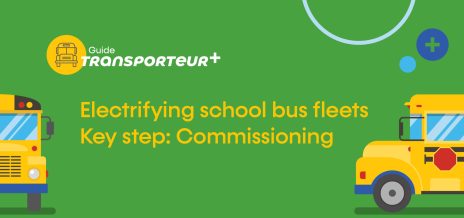
Electrifying school bus fleets | Key step : Comissioning
In this series of articles, we demystify the key steps of converting your school bus fleet to electric power thanks to the Transporteur+ guide. This guide aims to provide easy and direct access to resources to clarify the steps, issues, conditions and facilitating measures for a successful transition to electrification.
Read more
Demand response: Save money by using hydro at the right times
If you could lower your company's hydro bill while contributing to the collective effort to support Quebec’s energy transition, would you? Yes, most likely! How? By curbing power demand for buildings and equipment during peak demand events.
Read more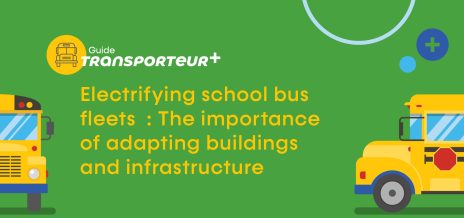
Electrifying school bus fleets : The importance of adapting buildings and infrastructure
In this series of articles, we demystify the key steps of converting your school bus fleet to electric power thanks to the Transporteur+ guide. This guide aims to provide easy and direct access to resources to clarify the steps, issues, conditions and facilitating measures for a successful transition to electrification.
Read more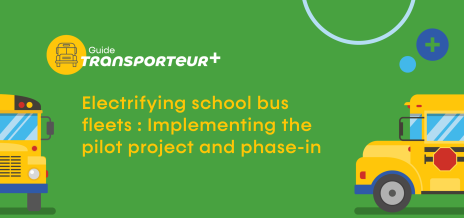
Electrifying school bus fleets : Implementing the pilot project and phase-in
In this series of articles, we demystify the key steps of converting your school bus fleet to electric power thanks to the Transporteur+ guide. This guide aims to provide easy and direct access to resources to clarify the steps, issues, conditions and facilitating measures for a successful transition to electrification
Read more
Defence and Security
The Electric and Smart Transportation (EST) positioning program for D&S is a project that will ultimately allow Propulsion Québec members to tailor their product and service offering to multiple D&S markets, facilitating the transition to electric and smart vehicle fleets and infrastructure.
Read more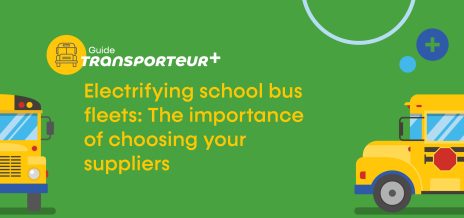
Electrifying school bus fleets: The importance of choosing your suppliers
In this series of articles, we demystify the key steps of converting your school bus fleet to electric power thanks to the Transporteur+ guide. This guide aims to provide easy and direct access to resources to clarify the steps, issues, conditions and facilitating measures for a successful transition to electrification.
Read more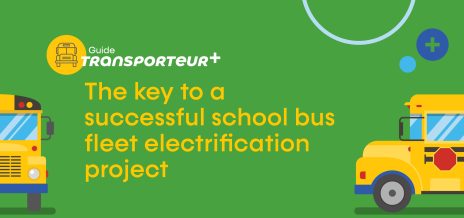
The key to a successful school bus fleet electrification project
In this series of articles, we demystify the key steps of converting your school bus fleet to electric power thanks to the Transporteur+ guide. This guide aims to provide easy and direct access to resources to clarify the steps, issues, conditions and facilitating measures for a successful transition to electrification.
Read more





